2016 | General
The Principle of Six Eyes by Dieter Kosslick
First published in the Tagesspiegel on December 6, 2015
Nowadays when the Berlinale comes out in support of refugees, it is not because it has a guilty conscience. Rather that’s what politicians, weapon dealers, stock punters and other cold-hearted individuals should have. They are the ones who brought on this refugee catastrophe in the first place, and have made money off it. And now these same people are hypocritically insulting refugees by calling them culprits and terrorists.
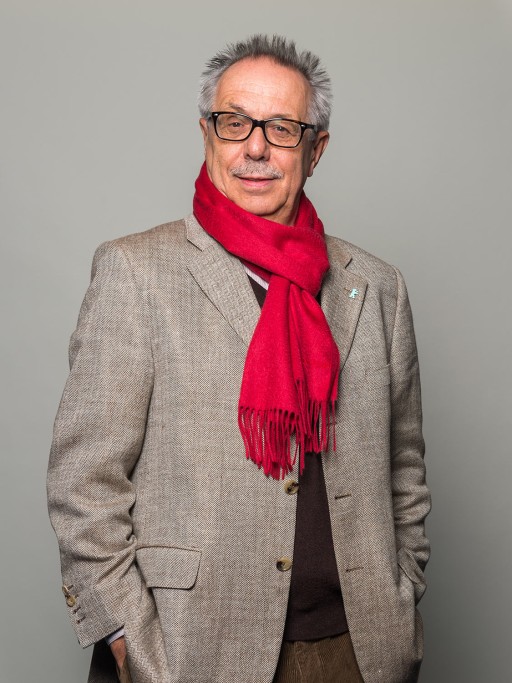
Berlinale Director Dieter Kosslick
Since the festival was launched in 1951, we have only had positive experiences with what is today known as “a culture of welcome”. Moreover the Berlinale would not exist if it were not for foreigners. The eleven days of the festival at Potsdamer Platz demonstrate how cultural diversity can celebrate a peaceful fest with great energy and verve.
Although obviously, after attacks such as those in Paris, one also wonders whether peaceful gatherings and festival slogans like “accept diversity” or “towards tolerance” are effective. Recently I was with the German Foreign Minister Frank-Walter Steinmeier and a cultural delegation in Jordan, in the Saudi-Arabian city of Riyadh und in Tehran. At a university in the latter, Steinmeier gave a speech to students and politicians. I, too, spoke out at a workshop in favour of cultural understanding and Steinmeier’s “principle of six eyes”: Each of us has our own perception of things, our own two eyes, and with each of them we should try to see the view of the other, to find a joint view, so to speak, so as to achieve, through a shift of perspective, a view shared by both sides.
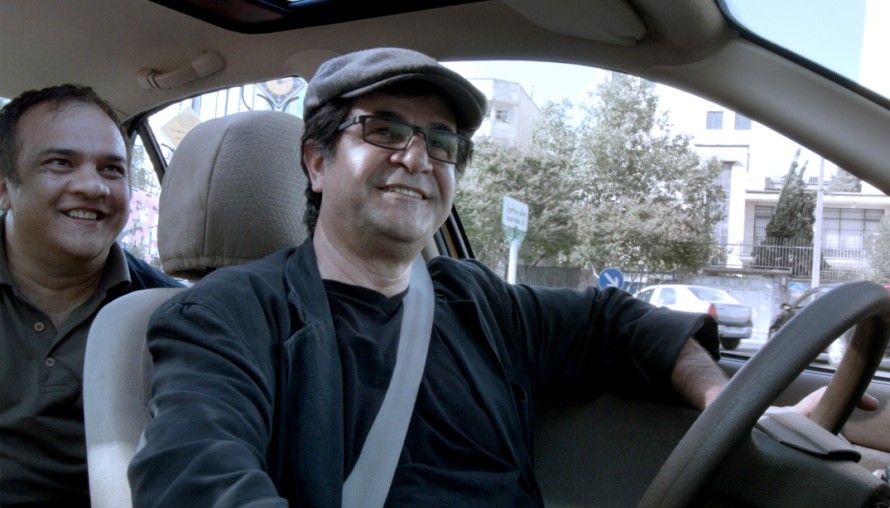
Taxi by Jafar Panahi
The students there all knew that Jafar Panahi, a critic of the Iranian regime, had won the Golden Bear in February and also that the Berlinale had for years actively supported Iranian cinema. But then at the back of the lecture hall, a man stood up and declared that our cultures and religions excluded mutual understanding. In response I pointed out that parts of the Koran and the Bible did, in fact, display similarities, and that Jesus was not only a Christian but also a Jew. With that the discussion ended. Communication was no longer possible. Even so, I am convinced that cultures are more likely to accept one another when we make an effort to find out what we have in common. How can we live in dignity? What do we need? How do we find happiness? Practices may differ but when it comes to goals, most people are in agreement: they want to live in dignity and peace.
In the cinema the principle of six eyes is a matter of course. We look through a screen like we do through an open window into another world or we are right in the middle of it. Over 20,000 participants from 130 countries come to the festival each year, and on these eleven days, Berlinale fans go to the movies more than 500,000 times. The peaceful co-existence of foreigners has been our standard practice for 65 years. Of course it is much harder to achieve it outside the illusionary space of the cinema and the protection of the festival. All the same, it is easier to create opportunities for discussion through culture than economics, as the latter is by nature more about profit and less about communication.
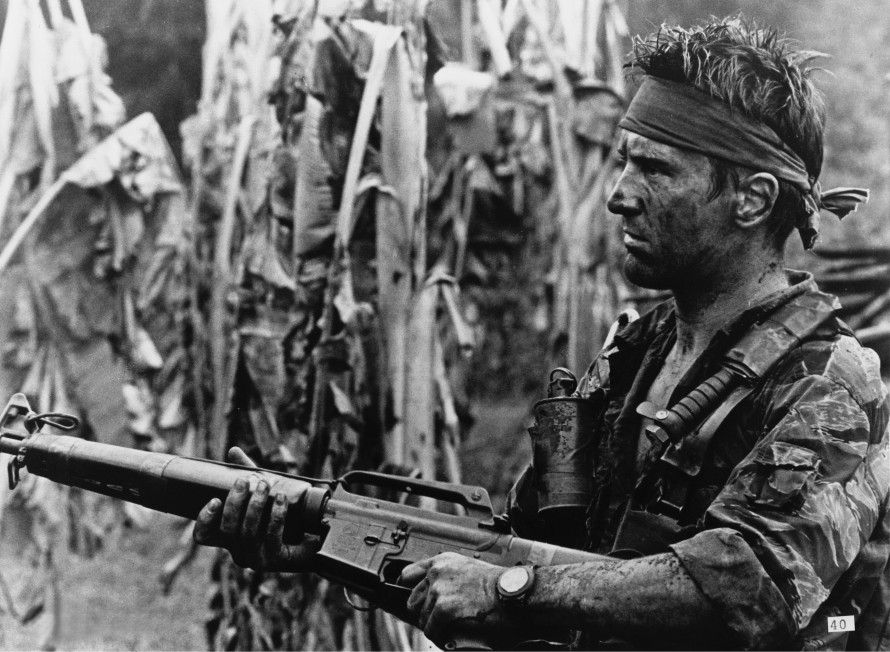
Robert De Niro in The Deer Hunter by Michael Cimino
If we succeed in not associating our fear of terrorism with the current influx of refugees, we may discover that the refugees can help us carry out an enormous experiment on social tolerance. Living with immigrants has already changed our society positively, and since late summer refugees are having a similar impact. And the Berlinale – as a zone of tolerance – has had much practice with this kind of experiment. We have had the best of experiences in dealing with international relations, but for one exception: when Michael Cimino presented his Vietnam film The Deer Hunter in the Competition in 1970, the Soviets and other delegations from the Eastern Bloc withdrew their films and left in a huff, allegedly because Cimino’s film insulted the Vietnamese. A huge misunderstanding during the Cold War era.
In my opinion, the clash of civilisations is the real reason why the Berlinale has such a fantastic aura. I remember one of the loveliest of such clashes happened late at night on the Alte Potsdamer Straße, when 400 participants of an earlier edition of the Berlinale Talent Campus headed directly from the Red Carpet to a bratwurst stand, the one and only bratwurst stand the Berlinale has ever had. We had passed out small red and blue cards to the talented participants, vouchers for bratwursts with or without pork, depending on their religion. On the way, two young Israelis were hurrying along on my right. They asked me to introduce them to the three young Afghans who were on my left and who had brought a video about life under the Taliban with them (they had, by the way, been flown in for us by the German armed forces). A moment in which the impossible seemed possible: an Israeli-Afghan co-production – well, why not!
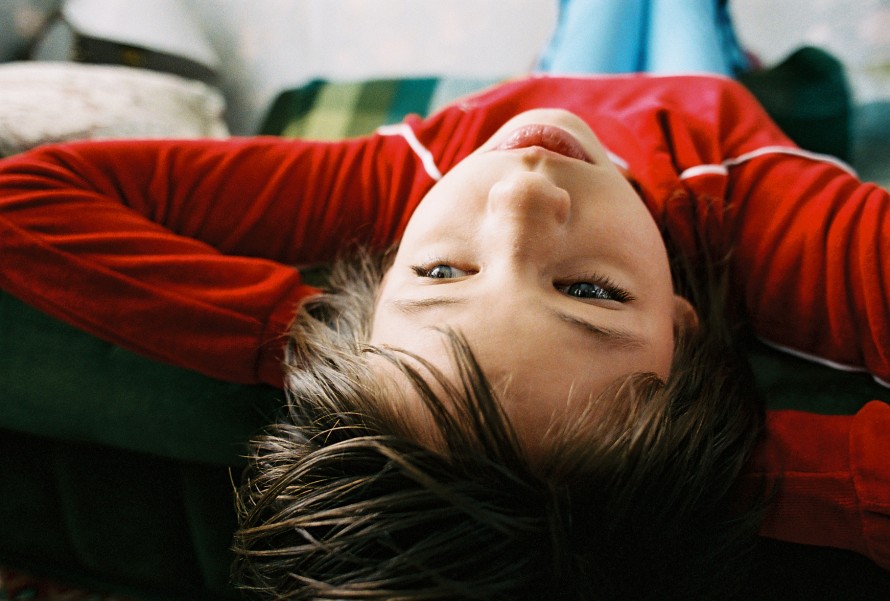
Luna Mijovic in Grbavica by Jasmila Zbanic
For me the most intense moment, one in which not only a utopia but also the cinema merged with reality, was in 2003, on the last day of the Berlinale. At 2.00 pm, Jury President Atom Egoyan – an Armenian – announced the Golden Bear for Michael Winterbottom’s refugee drama In This World; at the same time, over 400,000 people were demonstrating round the Potsdamer Platz against the invasion of Iraq. At that moment the Berlinale and the cinema were literally “in this world”. I felt something of a similar intensity in 2006, when Grbavica, Jasmila Zbanic’s drama about Bosnia, won the Golden Bear. Or this past year when the winner was Taxi, the film Jafar Panahi made in secret. It was not only a courageous work but also one that in a grandiose manner conveys the inalienable right to freedom of expression.
Nazif Mujic – a man of Roma heritage from Bosnia who played himself in an enactment of his own story, An Episode in the Life of an Iron Picker, and for his performance won the Silver Bear for Best Actor in 2013 – came back to Berlin with his family the following winter and applied for asylum. In such a situation we, as staff of the Berlinale, have a special responsibility. Privately we hired an excellent lawyer for him, and did what we could. But we couldn’t change the laws: since his homeland was considered a safe country of origin, he and his family had to return to Bosnia.
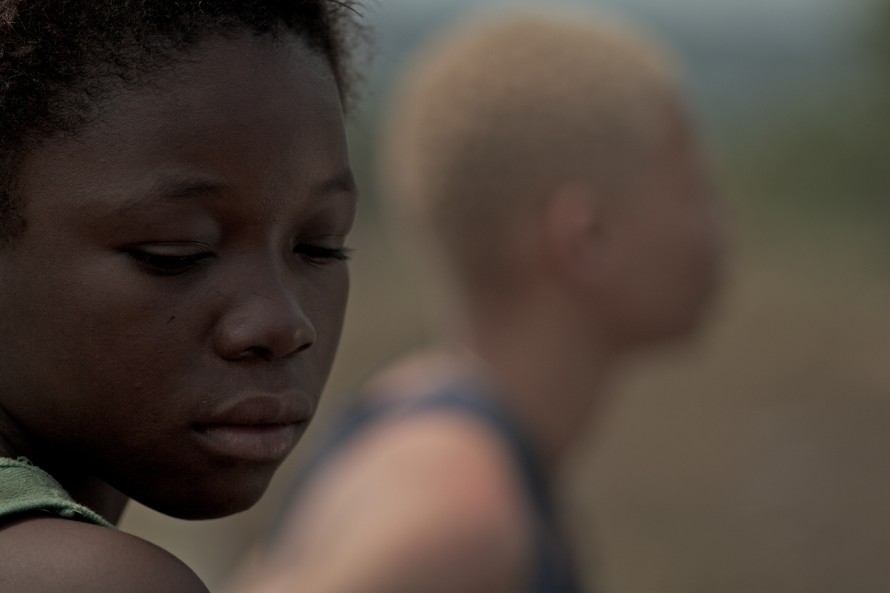
Rachel Mwanza in Rebelle (War Witch) by Kim Nguyen
We have an especially great responsibility when non-professional actors are involved. This was true for the protagonists in In This World; as well as those in Feo Aladag’s Afghanistan film, Inbetween Worlds (2014); and the adolescent actors in War Witch (2012), a film about child soldiers and for which Rachel Mwanza won Best Actress. We invite them to come and care for them as their host, but we cannot solve all the problems they will have when they return home, to war, to conflict zones, to poverty. We can only help to the best of our abilities and draw attention to their reprehensible situations.
In the long term, the way to solve the refugee issue is through diplomacy. Only it can put an end to the insanity that forces people to leave their homelands. In addition we have to fight hunger, and the gap between the rich and the poor, which is also widening in our own country. For it also triggers irregular processes, be it in East Germany or Bangladesh. Films are merely able to enhance sensitivity for such processes. By the way: I don’t understand the rich. Their senseless profit mongering contributes to these problems: for instance, to the hunger and terror in Nigeria or the massive environmental destruction caused by mining oil sands in the Arctic. The tax payer is then asked to foot the bill; the military and police, to restore order. Billions in food aid become necessary and as a result corporations make even greater profits.
In 2016, the Berlinale will, of course, again devote itself to the refugee issue. It is, so to speak, in the Berlinale’s DNA to offer filmmakers and artists a platform for exploring societal problems. At the moment we are examining our options and establishing contact with refugee organisations. In addition we are considering meaningful integrative measures. Free admission tickets for refugees simply isn’t enough. What kind of discussion forums are possible and how can we create a context that refugees will be able to identity with? One example I just heard about: Not only did refugee children save a school from closure in the Brandenburg village of Golzow, which is known to Berlinale audiences from the longest running documentary project ever, Barbara and Winfried Junge’s The Children from Golzow. But the arriving refugees were shown old Super 8 films made in Syria and Iraq by GDR documentary filmmakers. The refugees saw their homelands before they had been destroyed – certainly an extremely emotional experience for everyone.
In early September, on the sidelines of the Venice Film Festival, I ran into writer Donna Leon, just after Chancellor Merkel, in reference to the large number of refugees, made her now famous statement: “We can do it!” Donna Leon said to me that Germany was experiencing one of the best moments in its history. It was taking in great numbers of refugees and had such a positive attitude, as could be seen in the words of the country’s most important representative. Indeed, despite all the loudmouths and pyromaniacs, all the serious concerns and problems, we are experiencing a historic point in time. I was born in 1948, and as far back as I can think, we have, thank goodness, been working on coming to terms with the Third Reich. Notwithstanding our political, academic and media-related efforts, most of us have had the good fortune to not have experienced persecution, flight and war personally. At present we are, however, confronted with a similarly large migration of peoples. And for the first time we are beginning to realize, quite concretely, what it means when millions have to flee, lose all they have, and don’t know if and when they will be able to return to their country. The present situation gives us the historic chance to understand our own history – and to learn from it that we should do everything we can to treat people with dignity and give them a new home.